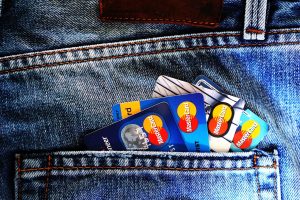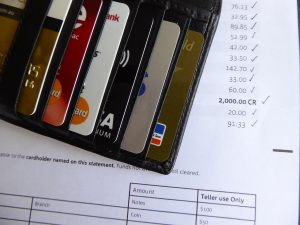While a lot has been written about travel safety, one topic that deserves more attention in particular is protecting your credit card from scams and data theft. Let’s face it, as a traveller, you are vulnerable – you’re using unsecured Internet connections, frequenting unknown places and trusting merchants you’ll probably never see again.
So, how can you prevent credit card scams while travelling? We’ve carefully compiled a list of 8 tips from several expert sources to help you travel smartly and safely –
1) Basic Precautions – Skimmers (portable machines that are able to copy your credit card details) are the most common way to fall prey to credit card scams. So needless to say, as far as possible dont let your card out of your eyesight – for example, if you have to swipe your card at a restaurant, go with the waiter or bar tender, rather than letting your card slip out of sight in a foreign location. And, hold onto all receipts. Share your itinerary with your card banks so they don’t suspend your card for unusual activity. Keep an e-copy and hard copy of your credit cards. And, travel with at least two cards so one can serve as an emergency back-up. Rookie tip – Keep your cards in RFID sleeves to make it difficult for thieves to skim your cards with electronic readers. You can easily order these online.

2) Diversify – Only use debit cards to withdraw money in local currency. For shopping/eating and hotel payments, use credit cards. Why? Because debit cards are linked to funds in your actual bank accounts, so it is even more important to safeguard them. Also, keep an emergency stash of cash in case you lose all your cards.
3) Special Cards – You can also consider using a designated travel card which has a pre-specified fund to minimize risk. Alternatively, you can ask your bank for a chip-and-pin card that requires a particular pin to complete any transaction, hence making it difficult for a thief to actually use your card even if they steal it.
4) Emergency Numbers – Always jot down emergency numbers in case you ever need to report credit card/debit card fraud while travelling.
5) Cross-Check Hotel Security – 8% of credit card fraud is linked to hotels. Check with your hotel if they have an encryption or tokenization technology to safeguard your private information. If the hotel may be iffy, may make sense to just pay in cash.

6) Scrutinize Your Statements – Not only should you monitor your statements closely while traveling, also closely cross-check your statements extra-closely for a few weeks after your travels. The best way is to inform your bank that your trip is completed and they should notify you if any transactions occur from a foreign destination.
7) Safe Online Browsing – If you’re using free Wi-Fi or internet cafes, only check your bank statements on your phone or personal laptop. Fake wifi hotspots are a common way to hack into traveller’s mobile or laptop. Make sure your connections are secure by using https:// rather than http:// – the extra “S” stands for “secure,” which means your data is encrypted. Firefox, Chrome and Opera also have HTTPS Everywhere plug-ins. If you have to use a public computer, make sure you delete all cookies and browsing history before leaving.
8) Safe ATMing – Avoid thieves by using ATMs in daylight hours in safe locations, such as a secure lobby rather than random street locale. Keep an eye out for people snooping for PINs. The best option is to actually use bank ATMs – thieves are less likely to target them.
Now, all this said and done, if you do find yourself in a situation where your credit card has been stolen, or skimming has occurred, follow the following steps –
1) Place Calls – Immediately call your credit card company and bank to notify them of fraud/theft so they can freeze your account to prevent further damage from being done. Be prepared to go over your recent transactions calmly so they can mark which ones are fraudulent.
2) File A Report – If your credit card has been stolen while traveling, you must file a crime report with the local police station, in which you will need to mention where you used your credit card and where you first noticed the card was missing. Your hotel or local embassy can also help you with filing a crime report, in case you need special assistance. You will need to provide your credit card company a copy of this report.
3) Pause Your Credit Reports – A credit card thief can use your stolen credit card to create fake credit applications. So, freeze credit reports – this is a free service offered by most credit reporting bureaus – to prevent access to credit reports for new account opening while you are traveling.
We hope these tips will make your travel experience safer, smarter and more enjoyable.
Comment below to share your travel tips, and we might just share them on our social media pages!


